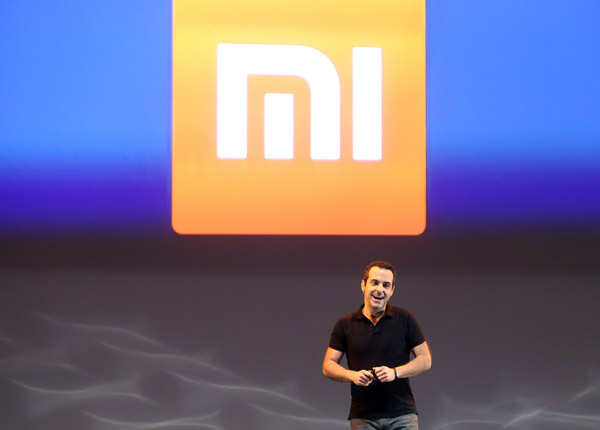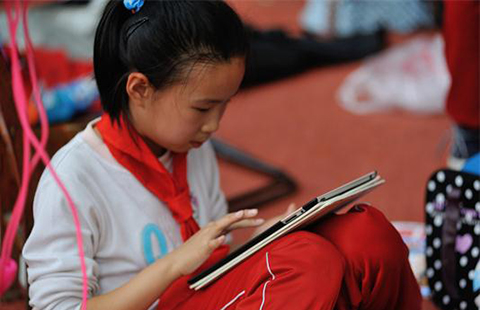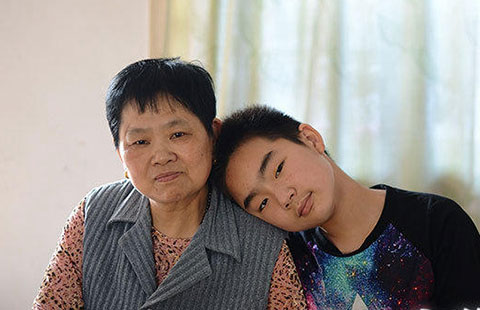Brazilian buyers swamp Xiaomi's website
Updated: 2015-07-13 03:50
By MAO PENGFEI AND JI YE in Rio de Janeiro(China Daily)
|
||||||||
 |
|
Hugo Barra, Xiaomi International vice-president, addresses the launch ceremony of the Chinese smartphone manufacturer's operation in Brazil, in Sao Paulo, on June 30. XINHUA/RAHEL PATRASSO |
Xiaomi's star model "Redmi 2" officially went on sale on its online store at 12:00 am local time on July 9.
The first batch of smartphones were only for consumers with reservations, but the number of buyers trying to get on the website overwhelmed the system and it had to be shut down. It returned to normal about 90 minutes later.
Hugo Barra, vice president of Xiaomi International, called the onslaught of consumers only natural, adding that in September 2014, Indians bought all the 40,000 "Redmi 1s" smartphones in 4.2 seconds.
However, the experience was unpleasant for some locals not familiar with Xiaomi's way of selling, and they complained on Facebook about how difficult it was to obtain a phone.
"I kept refreshing the web page for two hours, but still didn't get it. Xiaomi should have given us a heads-up on its way of selling things," said Carlos Sassi. "But I will still buy it. It's cheap with good quality."
Brazil is Xiaomi's first market outside of Asia, and the cheapest Redmi 2 model is only 499 reais ($162).
Xiaomi, which means “little rice” in Chinese, has created a buzz in China for selling high-end smartphones that are priced close to cost. Its other products, including tablet computers, routers and television sets, are also popular.
Xiaomi, sometimes called the "Apple from China", has enjoyed unexpected rapid growth since it was founded in 2010. Part of its success is due to its competitive pricing strategy, as its products usually cost half of Samsung and Apple products while sharing almost the same hardware.
In May 2014, the company showed its determination to take on Apple and Samsung in the global smartphone market by revealing international expansion plans that target 10 other countries and regions, including Brazil.
Barra said that Xiaomi also uses the same competitive pricing that it uses in China when it launches products in foreign markets.
Brazilian customers can place orders with the site -- br.mi.com -- to purchase Xiaomi's products, ranging from "Redmi 2'', the smartphone, "Mi Band'', the activity monitor, "Mi Power Bank", the portable charger and other accessories. Customers' orders will be delivered starting Tuesday, said Barra.
Xiomi hopes Brazil will be home to the first manufacturing factory for its products outside of Asia, according to Barra.
"One of the differentials allowing (Xiaomi) to offer high technology products at highly competitive prices is the direct sale to the consumer through the website and (spreading) publicity only through social networks in a viral way and without investments in other media," said Barra.
Xiaomi, created in 2010, ranked 14th in global sales for smartphones in early 2013. It is the fifth-largest smartphone maker in the world, ahead of giants like Motorola, Nokia and Sony Mobile.
Its MIUI operational system has 100 million subscribers. The company has a market value of around $45 billion. It sold 61 million mobile devices last year
Xiaomi provides a variety of customizable products, meaning different back covers and extra batteries can be purchased. The company also offers services mobile applications and movies via its software and earns money by selling an array of accessories.

 Top gaokao scholars saddle up for a ride in the park
Top gaokao scholars saddle up for a ride in the park
 Girl who shoots straight with bow and arrow
Girl who shoots straight with bow and arrow
 Ten photos you don't wanna miss - July 10
Ten photos you don't wanna miss - July 10
 Forum Trends: Should we pay children to study?
Forum Trends: Should we pay children to study?
 Bereaved seniors turn attention to grandchildren
Bereaved seniors turn attention to grandchildren
 Unusual but true: sleep in a transparent glass room clinging to cliff
Unusual but true: sleep in a transparent glass room clinging to cliff
 24-year-old ethnic Chinese girl runs for US Congress
24-year-old ethnic Chinese girl runs for US Congress
 Plane makes emergency landing after fire
Plane makes emergency landing after fire
Most Viewed
Editor's Picks

|

|

|

|

|

|
Today's Top News
Leaders agree on partnership blueprint
New Development Bank launched in Ufa
IMF keeps 6.8% China growth view
Leaders agree on partnership blueprint
More tariffs on Chinese solar panels
Students study depression to raise suicide awareness
Official denial raises doubts over '40-year-old meat' story
Yuan hit by turmoil in the market
US Weekly

|

|






